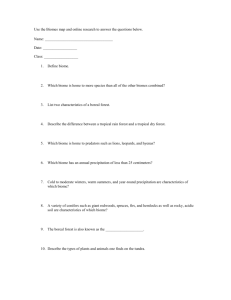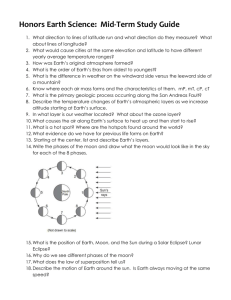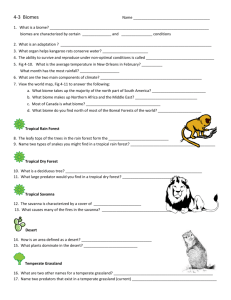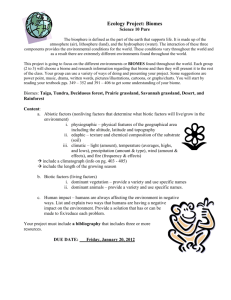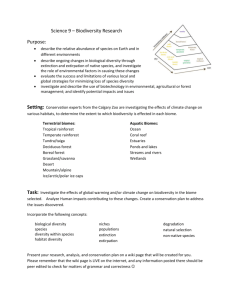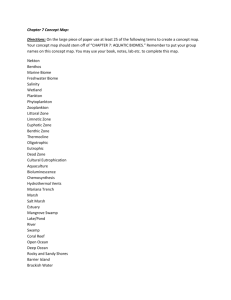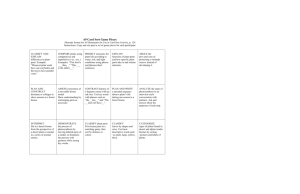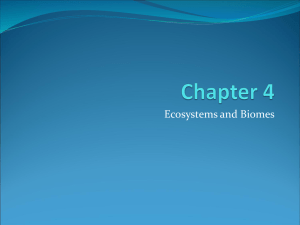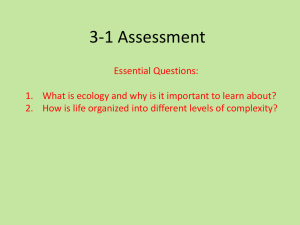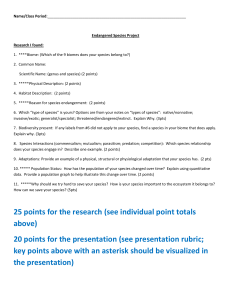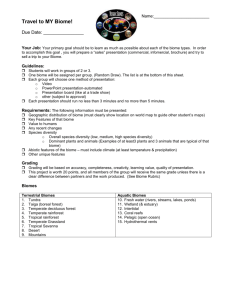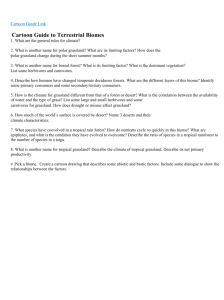Science 14 Chapter 14 Assignment Part II
advertisement
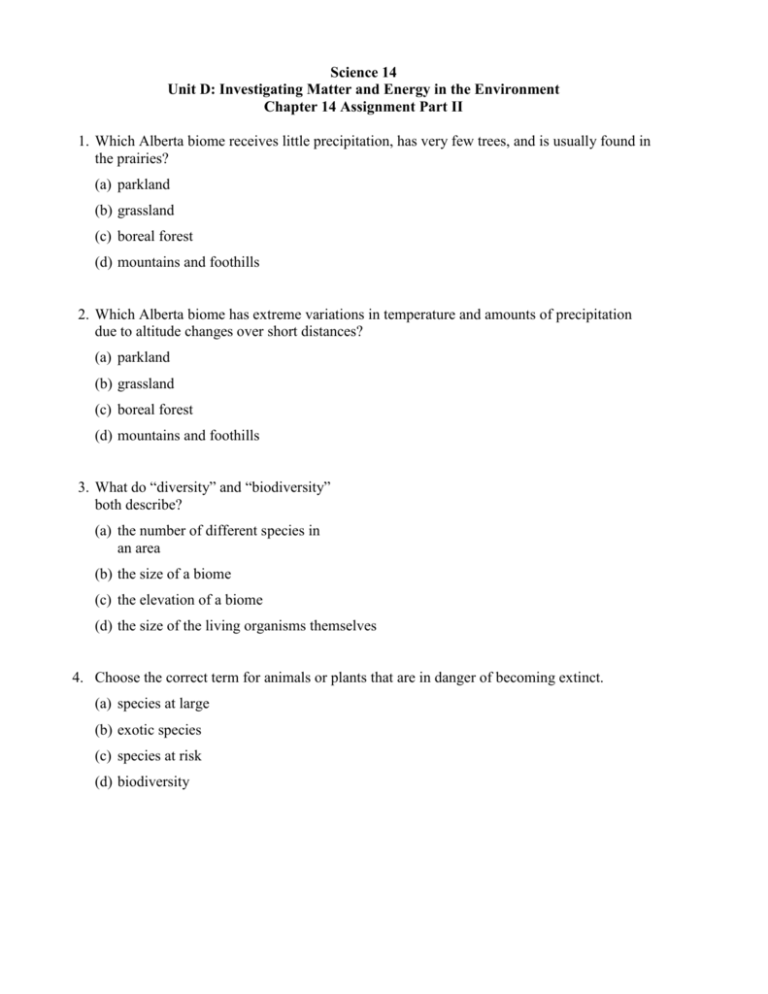
Science 14 Unit D: Investigating Matter and Energy in the Environment Chapter 14 Assignment Part II 1. Which Alberta biome receives little precipitation, has very few trees, and is usually found in the prairies? (a) parkland (b) grassland (c) boreal forest (d) mountains and foothills 2. Which Alberta biome has extreme variations in temperature and amounts of precipitation due to altitude changes over short distances? (a) parkland (b) grassland (c) boreal forest (d) mountains and foothills 3. What do “diversity” and “biodiversity” both describe? (a) the number of different species in an area (b) the size of a biome (c) the elevation of a biome (d) the size of the living organisms themselves 4. Choose the correct term for animals or plants that are in danger of becoming extinct. (a) species at large (b) exotic species (c) species at risk (d) biodiversity For questions 5 - 9, please provide detailed answers on a separate piece of paper. These answers are to be stapled to this page when you hand your assignment in. **You may want to use your text book to help you answer some of these questions.** 5. On a map of Alberta, locate, name, and describe the climates of the four Alberta biomes. 6. (a) How are coniferous trees adapted for the climatic conditions in the northern boreal forest? (b) Why are other producers, such as the low-bush cranberry, important to birds that spend the winter in this biome? 7. (a) How are prairie grassed adapted to the climate of the grassland biome? (b) How are other producers adapted to surviving in this region? 8. (a) Explain what is meant by the term “extinction.” Give an example of a species that is extinct, and explain how the extinction occurred. (b) Explain what is meant by “species at risk.” Give an example of a species that is at risk. 9. How do you think each of the following land uses could affect the biodiversity in an area? (a) Ploughing native grasslands and planting thousands of hectares of wheat. (b) Clearcutting the trees. (c) Dumping piles of rock over the side of a mountain in a mining operation. (d) Building a large shopping mall and parking lot in a wooded area.
